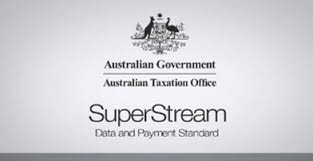The government has recently introduced a raft of superannuation and related changes that will affect retirees, first home buyers, and low earning employees. Each of the changes are explained in detail below.
Changes to work test and bring-forward rule under the current law individuals aged between 67 and 75 will either need to pass the work test or satisfy the work test exemption criteria if they want to make non-concessional and salary sacrifice contributions.
The proposed amendments will allow individuals aged between 67 and 75 to make non-concessional contributions and salary sacrifice super contributions without meeting the work test, subject to contribution caps. Following on from that, individuals under 75 years of age will also be able to access the bring forward non-concessional contributions in a particular financial year (provided eligibility conditions are met).
The age limit to bring forward non-concessional contributions is currently 67. Note, under these proposed amendments the work test or work test exemption would still need to be met if individuals between 67 and 75 wants to claim a deduction for personal contributions.
Downsizer contributions allows individuals aged 65 or over to make a contribution into their super of up to $300,000 from the proceeds of selling their home. With the introduction of amending legislation, the government is seeking to reduce the age limit of the downsizer contributions to apply to those aged 60 or over. It is expected to apply to downsizer contributions made on or after 1 July 2022, subject to all other eligibility conditions being met.
Increase in maximum releasable amount for first home buyers. The First Home Super Saver Scheme was designed to help first home buyers save for a deposit by allowing them to make voluntary concessional and non-concessional contributions into super and later withdrawing those eligible contributions and associated earnings for purchasing a home.
Currently, the maximum amount that can be released from super is $30,000. This maximum amount will increase to $50,000 which will apply from the day after the amending legislation receives Assent. Note, however, while the overall maximum amount will increase, the amount of voluntary contributions eligible to be released in any one financial year does not change from $15,000.
Removing minimum threshold for super guarantee currently, an employer do not have to pay super guarantee for one of their employees if they earn less than $450 in in a calendar month with that employer.
The $450 threshold was originally introduced as a way to minimise the administrative burden on employers. However, with the technological advancement of single touch payroll, the government no longer sees a need for the threshold, which is increasingly affecting young, lower-income, part-time, and female workers.
Depending on when the legislation receives Assent, the threshold will either be removed from 1 July 2022 or if it is after that date, from the beginning of the first quarter after Assent is received.
Speak to one of our accountants today if you have any questions or need assistance with super.





